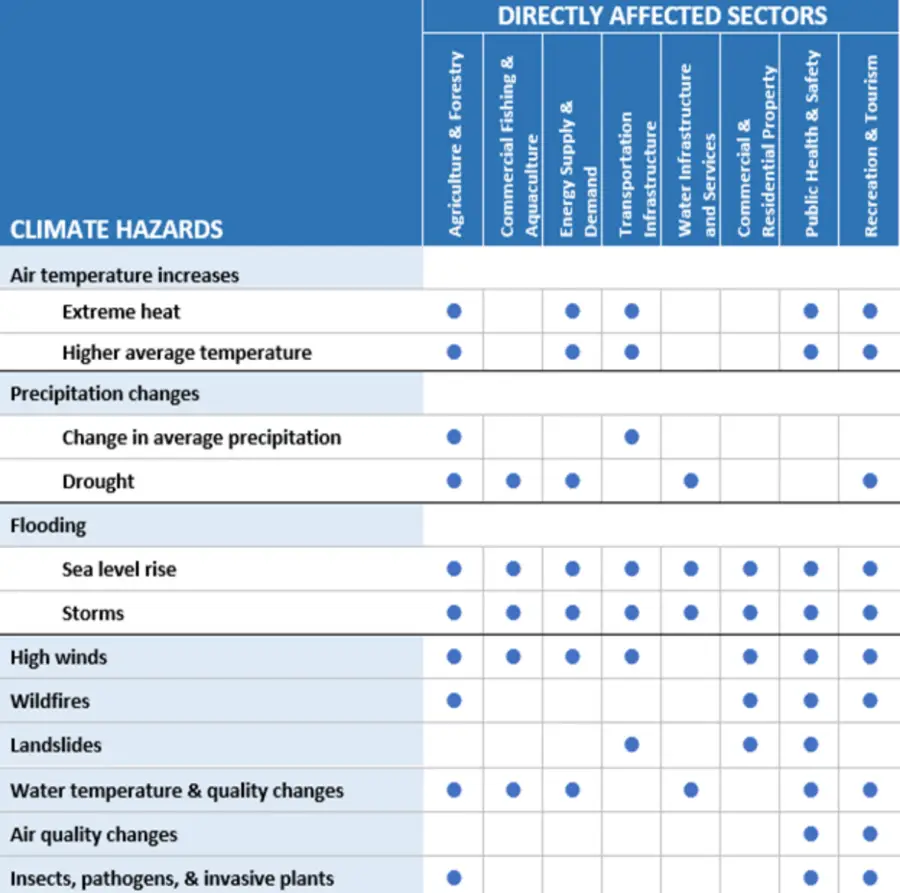Over the last century, the Earth’s climate has warmed at an unprecedented pace resulting in rising sea levels, more frequent and severe storms, and worse and more widespread flooding.
If concerted actions are not taken, these impacts have the potential to impose significant costs on the residents of North Carolina through detrimental effects on their health and well-being, their economy, and their environment.
To promote a better understanding of the range and size of these potential impacts, the RTI Center for Water Resources collaborated with the Environmental Defense Fund (EDF) to create the report, Climate Change and North Carolina: Near-term Impacts on Society and Recommended Actions, summarizing economic ramifications and projected costs of climate change in the state.
Projecting Climate Hazards for N.C.
With climate change resulting in precipitation fluctuations, sea level rise, and other water-related impacts, our experts at RTI combine scientific research and analytical methodologies to promote improved understanding of the risks posed by climate change and to inform policies addressing climate change and strengthening climate resilience.
This climate change report utilizes and builds on findings derived from the North Carolina Climate Science Report (NCCSR) to identify and investigate the following types of climate hazards that could directly harm human health, livelihoods, and natural resources if no action is taken in the near future:
- Air temperature increases
- Precipitation changes
- Flooding, wildfires, landslides
- Water temperature & quality changes
- Air quality changes
- Insects, pathogens, & invasive plants
Measuring Impacts on North Carolina’s Residents and Economy
If no cooperative action is taken to reduce polluting emissions, there are numerous ways that the people and economy of N.C. may be affected by different climate hazards. The report identifies the hazards most likely to impact eight main sectors of the state’s economy and describes how significant these impacts are likely to be for the state’s sectors and residents.
Table 3.1. from the report - Summary of Climate Hazards Affecting Key Sectors of North Carolina
Read sector-by-sector descriptions of the potential impacts summarized in Table 3.1. by reviewing section three of the climate change report. Descriptions of how these impacts are likely to vary across the state (e.g., by region or county), depending on geographic, demographic, and economic characteristics are also included.
Actions to Address Climate Change in N.C.
While federal and international action addressing climate change is key, climate impacts are already occurring in North Carolina, there are actions that can be taken on the state level to help combat its effects. Burning fewer fossil fuels, like coal, oil, and gas, could help mitigate some of the most catastrophic possible impacts of climate change, if such action is taken sooner rather than later.
Implementing a statewide, declining limit on greenhouse gas pollution, spurring the adoption of electric vehicles, and investing in other efficiency initiatives are actions N.C. can take to address climate change. North Carolina ranks among the nation’s top 15 emitters of carbon dioxide, so the state can take the lead on state climate action to accelerate investment in the clean energy economy, promoting the growth of businesses and jobs.
Though mitigation is essential for reducing harm in the future, even if N.C. cuts emissions, the state’s climate will continue to change because of past and global emissions. For the climate hazards N.C. cannot prevent, the state should also consider measures that lessen climate impact through adaptation and resilience.
In the report, RTI International and EDF recommend evidence-based actions for climate adaptation and resilience. Suggestions include incentivizing resilient farming, protecting shorelines, investing in urban green infrastructure, supporting research towards understanding resilience-building strategies, and many other actions. These recommended actions and more will be necessary to protect against the impact of climate change affecting N.C. residents today and potentially in the future.
Read the entire report, Climate Change and North Carolina: Near-term Impacts on Society and Recommended Actions, for complete details on the findings and proposed actions.



